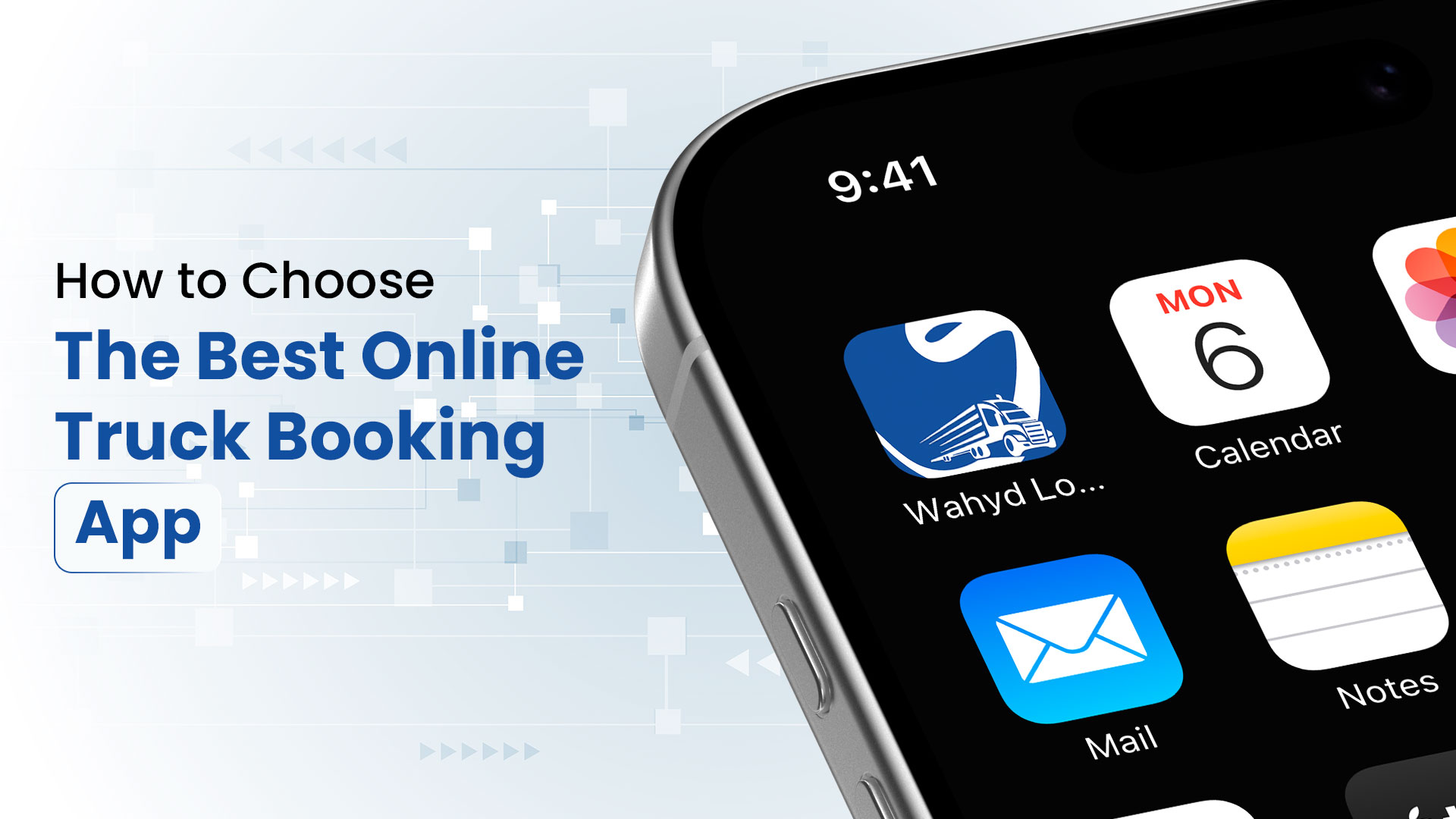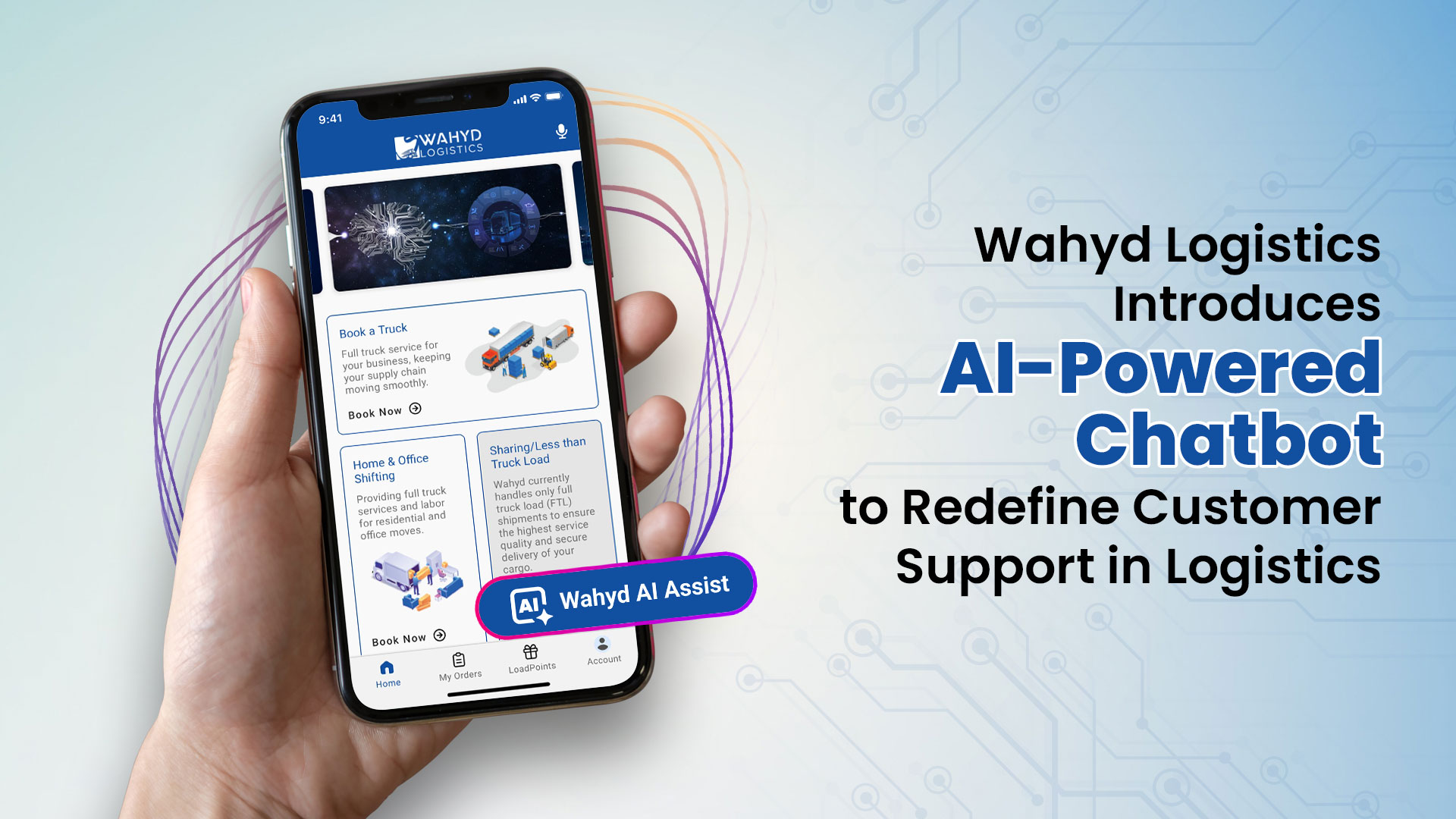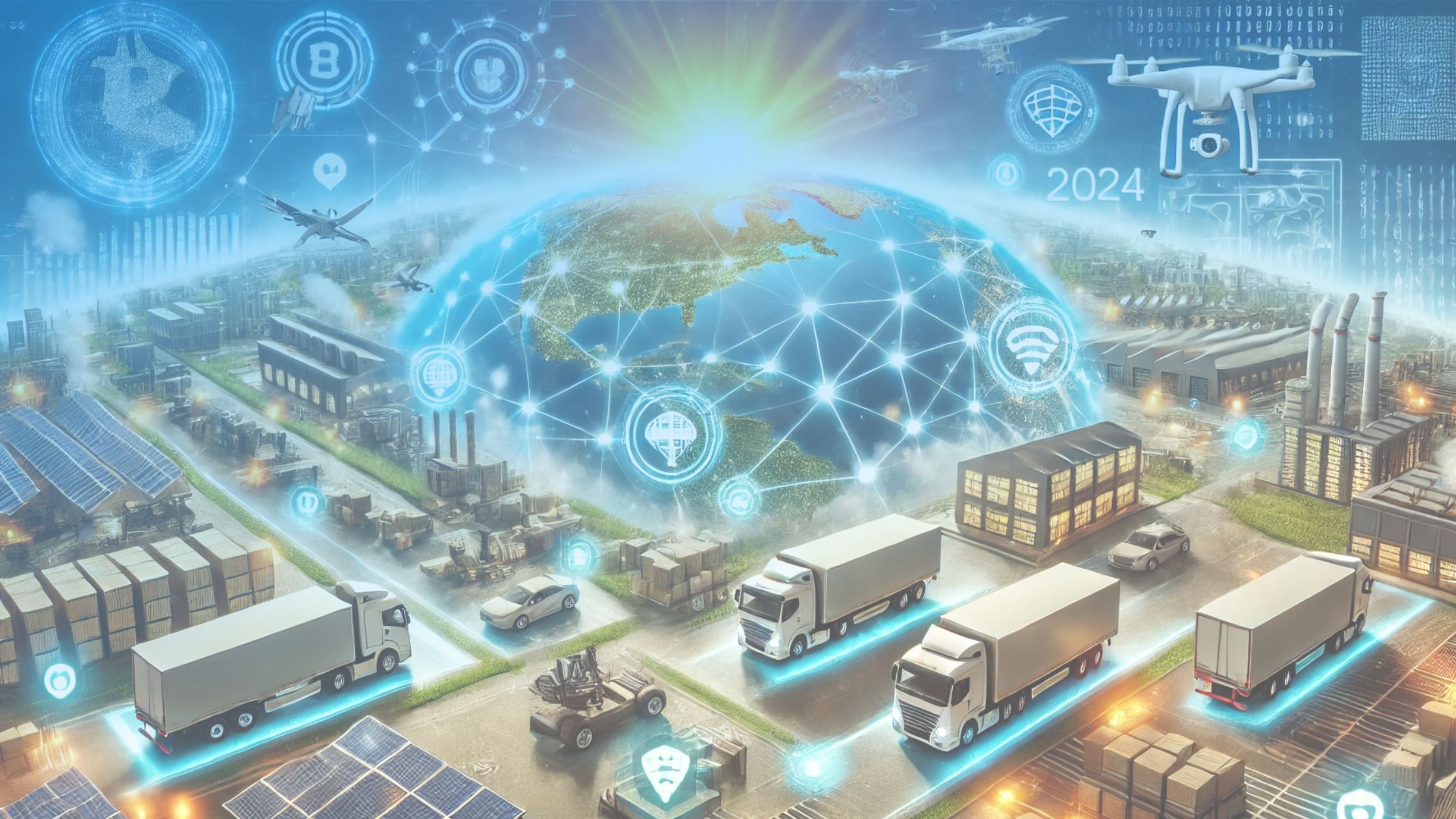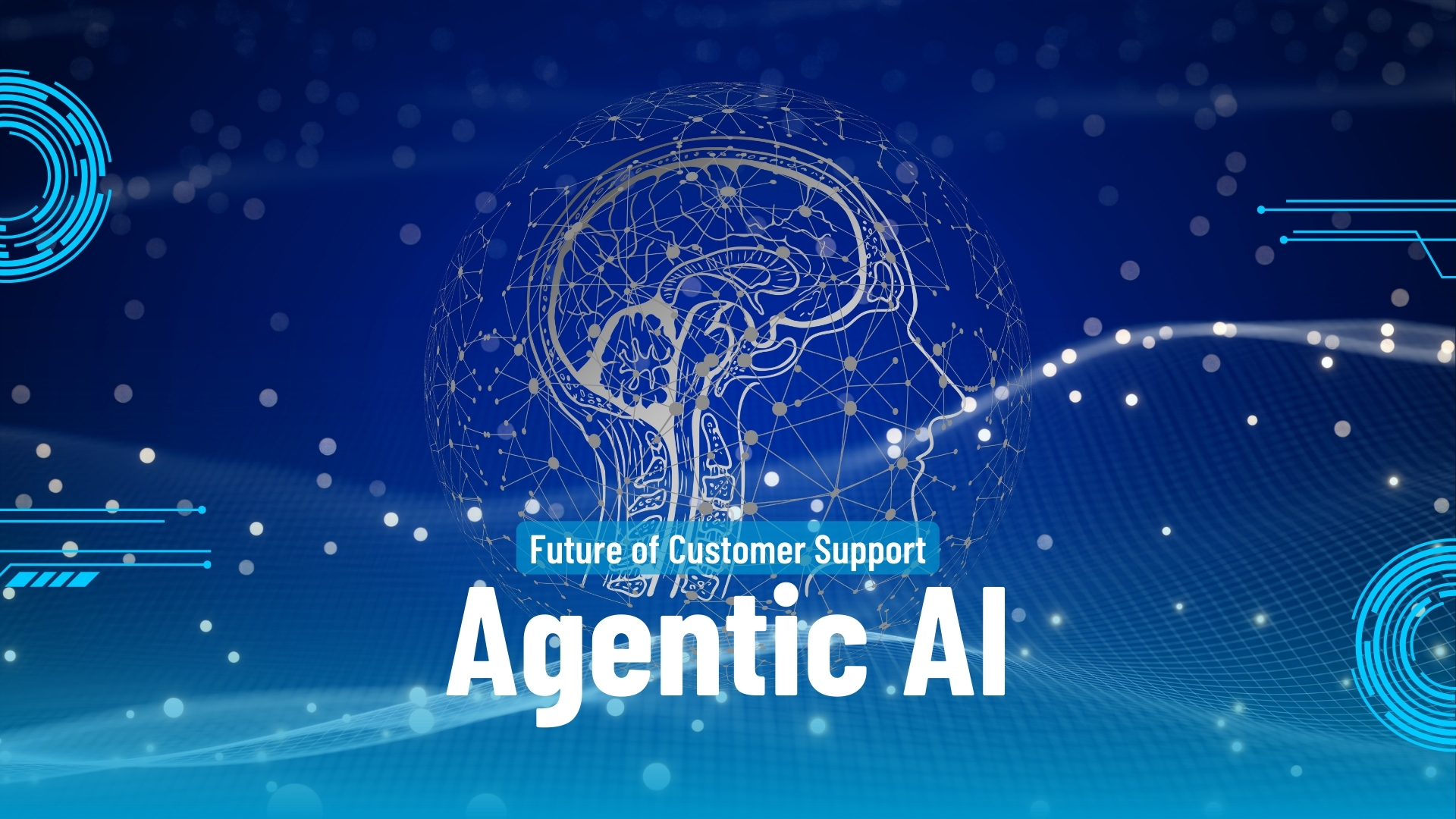
Customer support has changed a lot over the years. Remember the days of waiting on hold for hours just to speak to someone at a call center? Then came chatbots that gave instant replies—but often left us frustrated when they couldn’t solve real problems.
Now, a new kind of technology is here: Agentic AI. Unlike regular chatbots, agentic AI doesn’t just answer questions—it can actually solve problems on its own. Unlike scripted bots, it doesn’t just answer—it acts, solving issues in real-time. At Wahyd Logistics, we’ve seen this shift firsthand, using agentic AI to help our customers, whether shippers or transporters, get faster, smarter support with minimal wait time. Think of it as moving from a “scripted helper” to a “self-driven problem solver.”
This shift is shaping the future of customer support, and here’s why it’s here to stay.
What is Agentic AI?
Agentic AI is a smarter type of artificial intelligence. It can make decisions and take action without waiting for a human to step in.
- A regular chatbot might just tell you your package is delayed.
- An agentic AI could check the shipping details, contact the courier, and update you with a solution, all on its own.
That’s the big difference: instead of being reactive (waiting for you to ask something), agentic AI is proactive (fixing things before you even notice a problem).
How Customer Support Has Evolved
To understand why agentic AI matters, let’s look back at how customer support has changed:
- Call Centers – You’d wait on hold for hours to talk to a person. Personal, yes. But slow and expensive.
- IVR Systems – “Press 1 for billing, press 2 for tech support.” Helpful at first, but quickly became annoying.
- Chatbots – Fast replies for simple questions, like business hours or password resets. But they failed at solving complex problems.
- Omnichannel Support – Businesses started serving customers on phone, email, live chat, social media, and messaging apps. Traditional bots struggled here.
Agentic AI is the next step—it works across channels, remembers your history, and continues the conversation wherever you are.
Why Traditional AI Falls Short
Even with all the progress, regular AI systems have big limitations:
- Rigid Responses – They often sound robotic.
- Limited Scope – They can’t handle questions outside their scripts.
- Poor Escalation – When things get complex, they usually just pass you to a human.
Agentic AI solves these problems by learning from context, adapting in real time, and acting independently.
Key Features of Agentic AI
So, what makes agentic AI special?
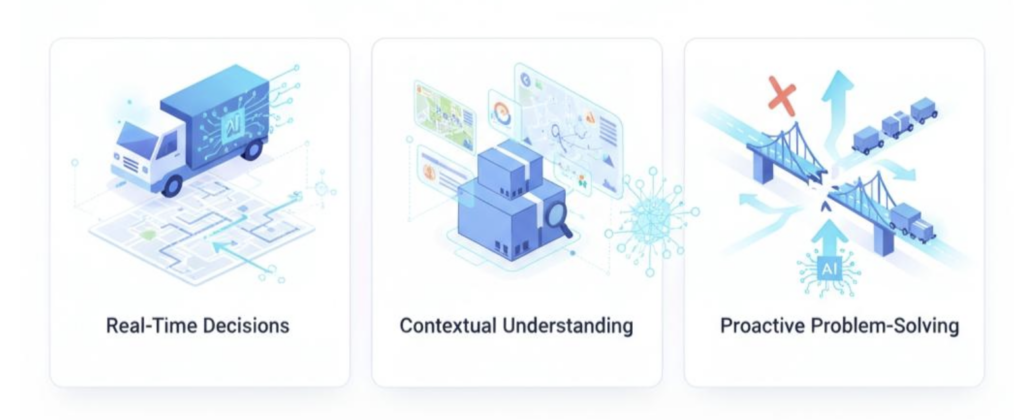
1. Real-Time Decisions
It doesn’t just respond, it acts. If a payment fails, a chatbot might only notify you. Agentic AI could retry the payment, suggest another method, or even fix it automatically.
2. Contextual Understanding
It reads between the lines. If a customer types, “I’ve ordered three times and still no package—this is ridiculous,” a normal bot might just apologize. Agentic AI would sense the frustration, check order history, escalate urgency, and give a real solution.
3. Proactive Problem-Solving
Agentic AI doesn’t wait for problems, it predicts them.
- It can warn you if your internet might go down.
- It can remind you when your subscription is about to expire.
- It can update you about a shipping delay before you even ask.
This proactive nature builds trust and keeps customers happy.
This is how Wahyd’s AI-driven support helps both sides of the logistics chain feel valued and supported.
Real-World Uses of Agentic AI
Agentic AI isn’t science fiction, it’s already here.
- AI-Powered Assistants – In airlines, they can help book flights, issue refunds, and solve complaints without humans.
- Smart Ticket Routing – Instead of bouncing between departments, AI can instantly send your issue to the right place—or fix it itself.
- Predictive Support – Internet providers can spot patterns in outages and warn customers ahead of time.
These use cases save time, reduce frustration, and boost loyalty.
Impact on Human Support Agents
A big fear around AI is job loss. But agentic AI isn’t about replacing people—it’s about helping them.
Reducing Burnout
Support agents often deal with repetitive questions like “Where’s my order?” hundreds of times a day. AI can handle those tasks, leaving humans free to focus on complex issues that require empathy and creativity.
Human + AI Collaboration
Think of agentic AI as a co-pilot. It prepares information, summarizes customer history, and suggests solutions before a human even joins the call. This makes human agents faster and more effective.
New Roles for Humans
As AI takes over routine work, humans can move into higher-value roles like customer success, relationship management, or supervising AI systems.
How Agentic AI Improves Customer Experience
At the end of the day, customers just want their problems solved quickly and personally. Agentic AI delivers both.
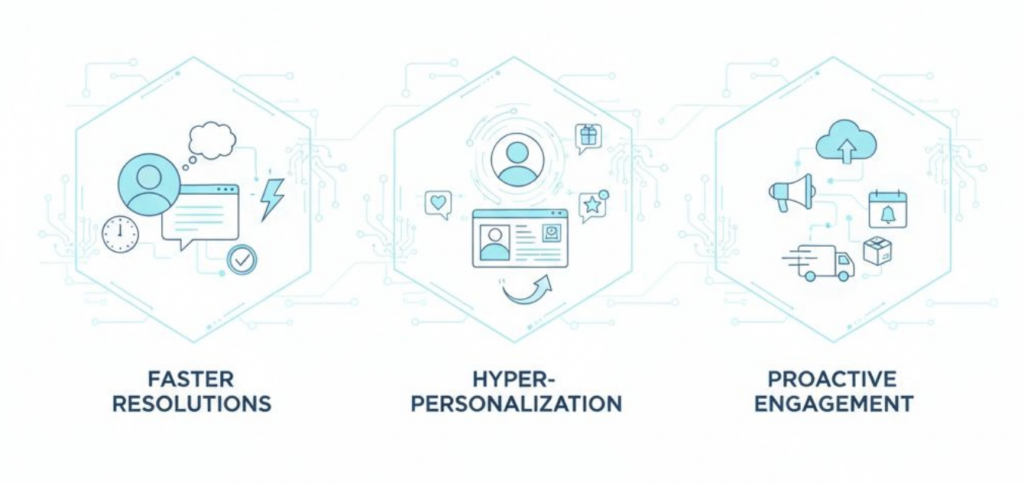
Faster Resolutions
From refunds to technical issues, AI can handle things instantly—no waiting in queues.
Hyper-Personalization
It remembers your history, preferences, and patterns. For example, if you always buy running shoes, it might let you know when a new model is released.
Proactive Engagement
It reaches out before problems even arise. Imagine your bank alerting you to suspicious activity or a streaming service helping you fix connection issues before you even complain.
The Future of Agentic AI
We’re still in the early days, but the future looks exciting.
Integration with New Tech
- Generative AI will help craft more natural, empathetic responses.
- IoT Devices will let AI monitor connected appliances and solve issues before they break.
- AR/VR could allow AI to guide you through fixing something in a 3D environment.
Self-Learning Systems
Future AI won’t need constant updates—it will improve automatically with every interaction.
Human-AI Synergy
Humans will take on the roles of strategists and relationship managers, while AI handles execution and data-heavy tasks. Together, they’ll create the best customer experiences ever.
What Customers Can Expect
Here’s a glimpse of what agentic AI could mean for everyday people:
- Zero Wait Time – No more hold music or ticket queues.
- Proactive Help – Issues fixed before they become problems.
- Always On – 24/7 support across all platforms.
- Empathetic Responses – AI that understands emotions and reacts appropriately.
- Tailored Experiences – Every interaction feels personal and unique.
At Wahyd, we’re already delivering many of these benefits through our AI-powered logistics platform, giving both transporters and shippers the confidence that support is always there when they need it.
Conclusion
The future of customer support is not humans versus machines, it’s humans and machines working together. Agentic AI brings speed, personalization, and proactive problem-solving, while humans add empathy and judgment.
For companies like Wahyd Logistics, agentic AI is more than a tool, it’s a strategic advantage. By reducing wait times, providing real-time updates, and ensuring seamless service, we’re proving why AI-powered logistics is the future.
Agentic AI isn’t just a trend. It’s here to stay, and it’s transforming customer support across every industry.

